Community Bridging the Digital Divide in Kenya A pupil of Iloirero Primary School using WiLearn Tablet during an ICT Lesson A pupil of Iloirero Primary School using WiLearn Tablet during an ICT Lesson Expanding Educational Opportunities in Rural Schools with WiLearn Digital Learning Initiative At Gamewatchers Safaris, our commitment to conservation goes hand in hand […]
Continue readingEmpowering Girls to Stay in School with PadMad – International Women’s Day 2024 Special
Community
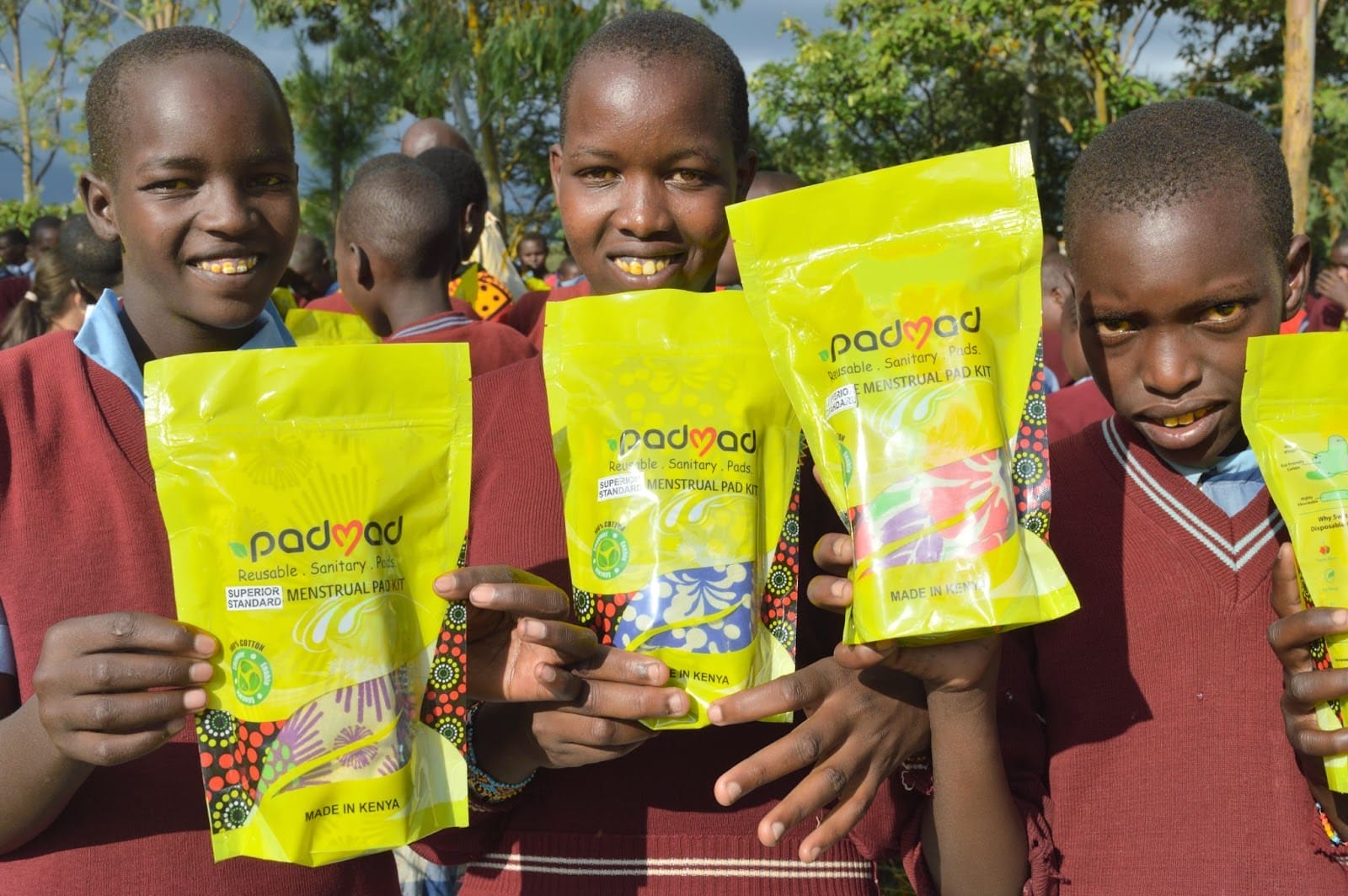
Empowering Girls to Stay in School with PadMad – International Women’s Day 2024 Special
As the sun rises over rural landscapes of Kenya, a silent struggle unfolds in the classrooms of remote schools. For many young girls, their education journey is disrupted by the natural rhythm of their bodies. Absences during menstrual cycles, lasting anywhere from three to seven days, create a stark disparity in learning opportunities between genders. Coupled with the pervasive stigma surrounding menstruation, these challenges cast a shadow over the educational prospects of young girls in these communities.
As part of our commitment to helping improve the communities around conservancies where Porini Camps are located, Gamewatchers Safaris and Porini Camps partnered with PadMad, a social enterprise based in Kenya keen on addressing period poverty, and donated reusable sanitary towels to over 170 girls and boys of Endonyo Narasha Primary School in Narok county, on International Women’s Day 2024.
65% of women in Kenya cannot afford the necessities to manage their periods. This is according to a report from the US Agency for International Development (USAID). These statistics have profound implications for women’s health and more so on their education and overall well-being of school-going girls of menstruating age who end up missing school regularly.
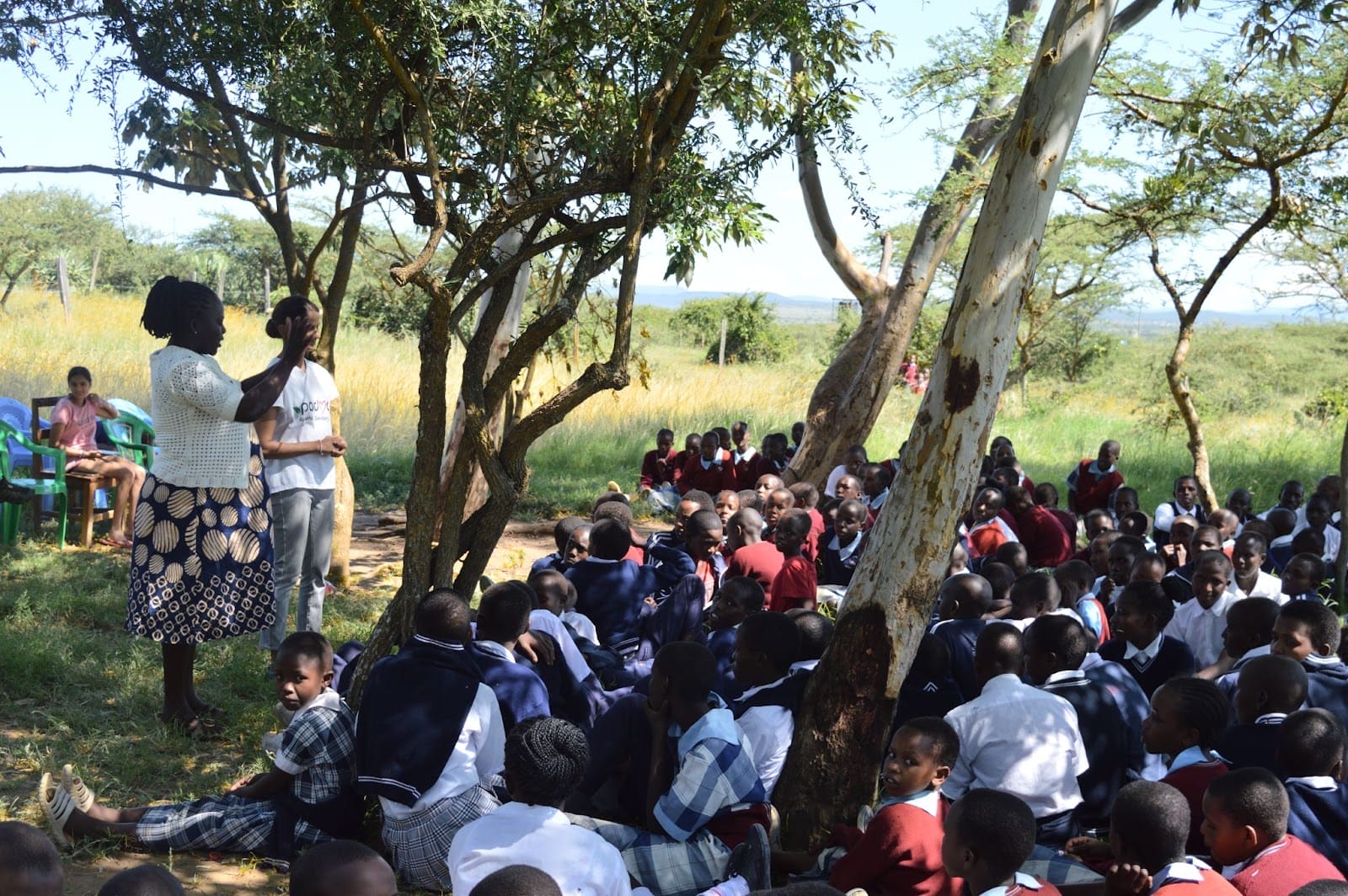
According to Peris Njeri, a dedicated nutrition teacher at the school, a prevalent issue among female students is their frequent absence from classes due to the unavailability of sanitary pads. This recurring challenge not only disrupts their education but also has far-reaching consequences on the academic performance and well-being of these young girls.
“Most of the parents are quite ignorant. They don’t understand the importance of Sanitary Pads so you find sometimes they send the girls to us here in school and the girls are in their periods and they don’t have the sanitary pads or if not so, they retain the girls at home and it becomes quite a challenge, even when the girls come to us after the 3 days, they are quite embarrassed because it’s like everybody knows the reason why they didn’t come to school,” explains the teacher.
“Sometimes they fail to come to school altogether for a period of up to a whole week because they don’t have their pads so majorly they opt to stay at home. And you find that in a day, it becomes quite obvious in a day, you can’t get a full class of girls because almost every day there’s a girl who has missed and it’s quite a challenge to us,” she adds.
The school occasionally receives sanitary pads from the local government. However, these donations are sporadic and insufficient to meet the needs of all the girls in the school. The inconsistency of these donations exacerbates the challenge of ensuring adequate menstrual hygiene management for the female students.
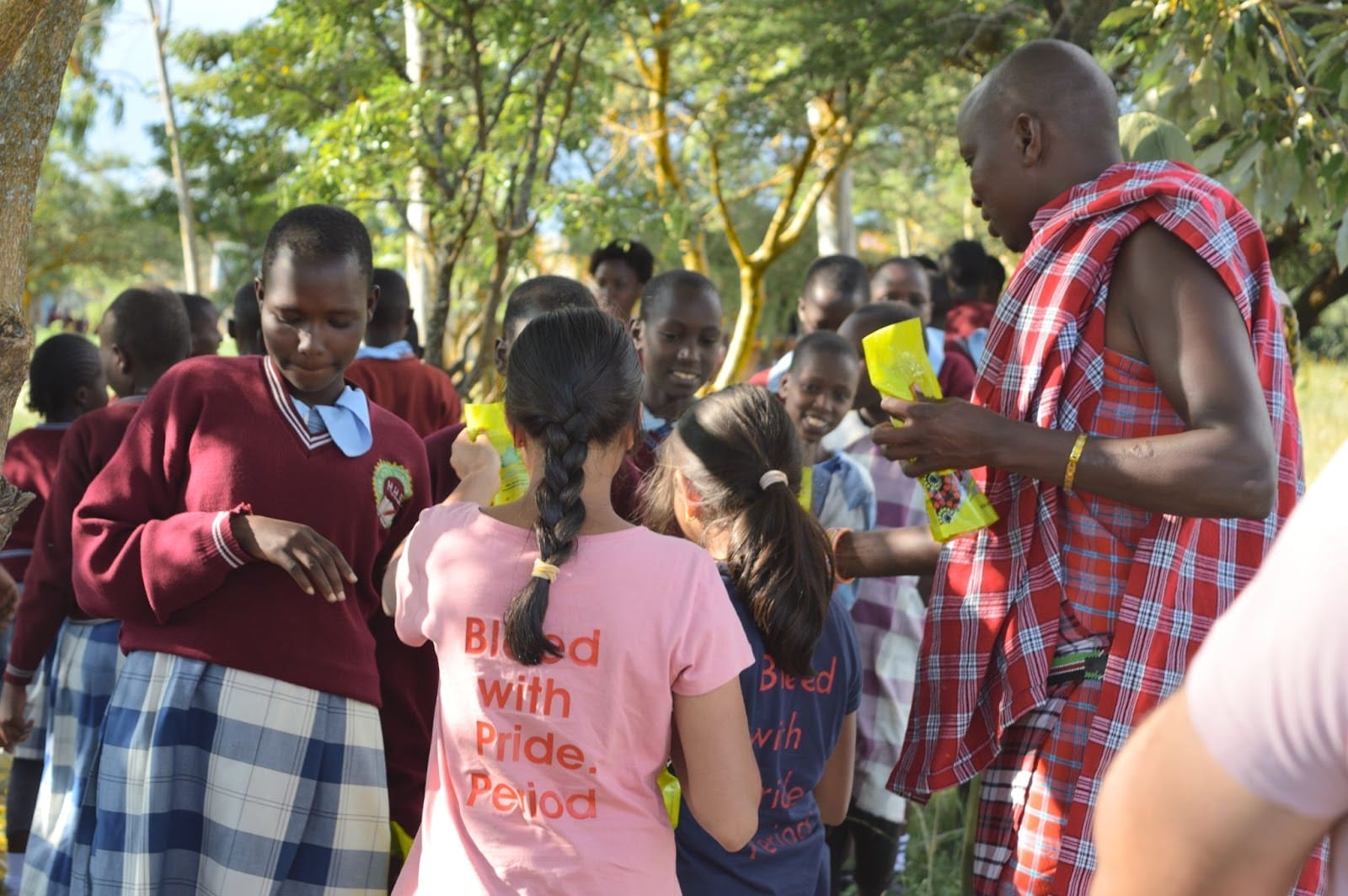
PadMad to the rescue
PadMad, a Kenyan social enterprise, is committed to tackling period poverty through the provision of a sustainable solution: reusable sanitary towels. In addition to supplying these eco-friendly pads, the organization offers comprehensive education on Menstrual Health Management and Sexual and Reproductive Health Rights to underprivileged and marginalized communities. What sets PadMad apart is its approach to production: the sanitary towels are meticulously stitched in rural Kenyan communities using locally sourced materials, thereby not only meeting a crucial need but also empowering marginalized women through employment opportunities.
“So we work on three pillars. One is education, empowerment and environment. So we have an educational program which we run in schools for boys and girls and community members. And the empowerment, we try and employ marginalized women and some men, so for example incarcerated or ex-cons, incarcerated women, teen mums, etc. as part of our program to manufacture reusable pads. And environmental products are very long-lasting and they’re 100% biodegradable,” says Madhvi Dalal, PadMad Founder and Director.
For years, the organization has partnered with Gamewatchers Safaris and Porini Camps, stemming from research conducted by Gamewatchers. This research uncovered a troubling reality: a considerable number of school-going girls in the vicinity of Ol Kinyei Conservancy were confronted with challenges leading to high dropout rates. Among these challenges was the unavailability and unaffordability of essential items like sanitary towels, compounded by their limited accessibility in nearby areas.
“The reason why we are supporting the school with this is to reduce the number of girls that drop out as a result of a challenge faced due to lack of sanitary pads in the school, in the community, and there is nowhere to buy them around. So usually when they are on their period stage, then they opt to go away from school, and finally they are just married and go off,” said Ol Kinyei Conservancy Senior Warden Simon Nkoitoi, during the donation.
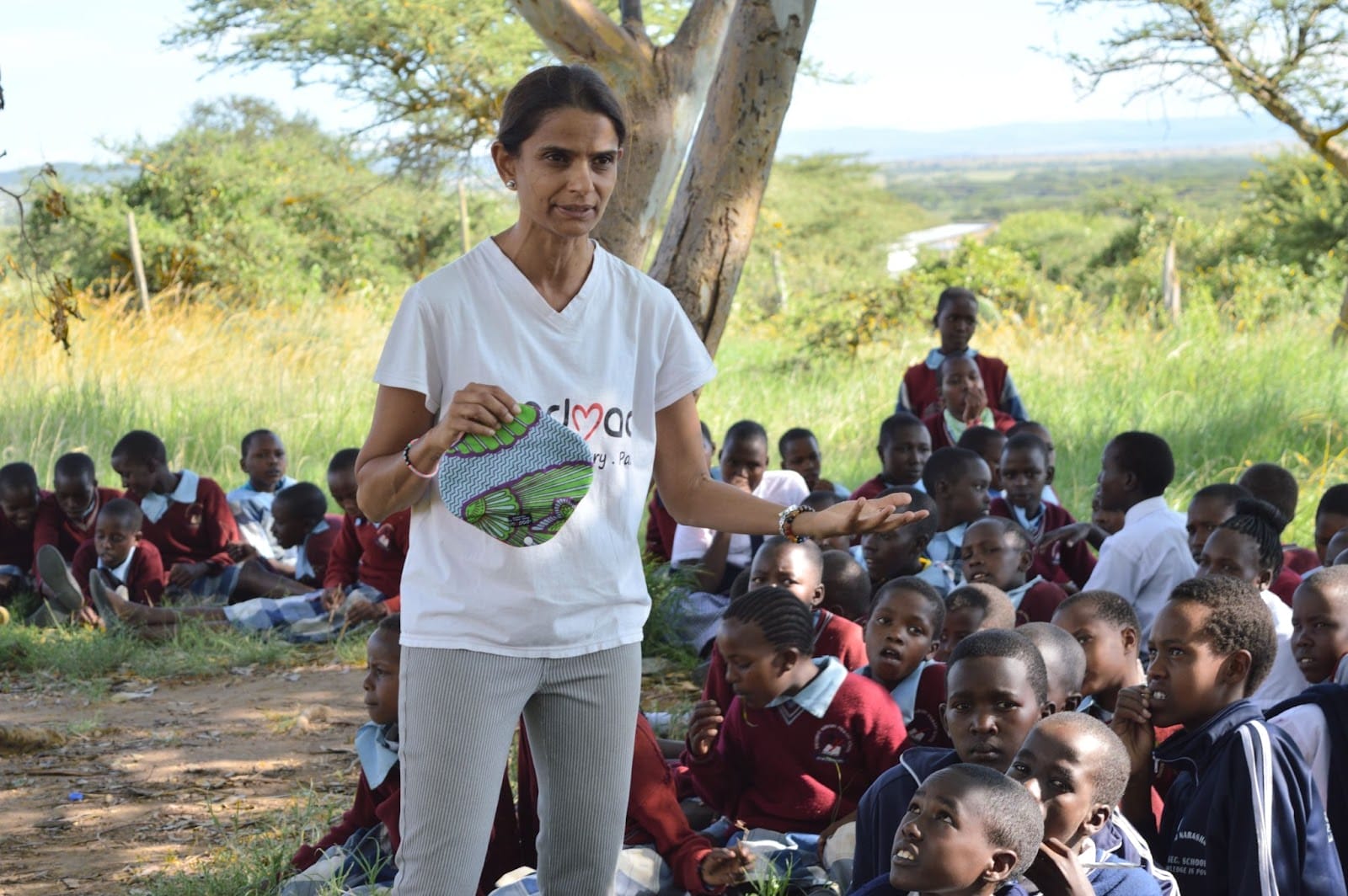
The importance of educating both the girl and the boy child about Menstrual Health
The donation event held on International Women’s Day 2024 aligned perfectly with the theme of the year: ‘Invest in women: Accelerate progress.’ It championed gender parity by educating both girls and boys on menstrual health, emphasizing the importance of equal access to essential resources for all.
“Well, we’re trying to aim to solve a big problem. So basically we’re trying to bring dignity into this whole, to make sure that the girl child can continue to go to school and if she is, then she can then maybe go for employment, peer-to-peer, and have that kind of elevation in whatever she is wanting to do and then maybe she can empower herself, empower family and the community to make sure that we really try to bring in dignity to the whole community,” said PadMad Director, Madhvi Dalal.
The director of PadMad emphasized the significance of involving boys in the conversation to cultivate understanding and eradicate period teasing and stigma.
“So today we have 170 girls and probably an equal number of boys who have benefited from the program, but to date we’ve impacted more than 61,100 girls and more than 50,000 boys. Educating the boy child is not even a question anymore. We need to do this. The reason why is because they are part of our community. They need to understand what is happening to girls. Girls need to also know that they feel safe peer-to-peer. And there are so many other consequences. Teen pregnancy, there’s so much education which goes with it. So they realize they are all in this community together,” explained Madhvi.
The event encompassed educational sessions for both girls and boys, featuring demonstrations on the proper use of reusable pads. The session concluded with pupils being taught affirmations aimed at boosting their self-confidence. The students gleaned valuable lessons from the session.
Solomon Kibelekenya, a student who participated in the sessions, shared, “Nimejifunza kama ni mwenzako ama wewe ni mvulana na umekuta msichana, hiyo damu imeingia kwa nguo zake si vizuri kumchekelea na si vizuri kumdharau. Ni vizuri kwenda kuambia mwezake ama marafiki mwenye anaweza kumsaidia” (I have learned that if you are a boy and you’ve seen a girl who has soiled her clothes, it is not good to laugh at her or look down on her. It’s good to go to her fellow female student or her friend who can help her).
Amina Kiok, another student at the school, expressed, “Nimegundua kuwa ukipata period ni mzuri kwako kwa sababu ukipata MP utapata watoto” (I have realized that getting your period is good because it is a sign that you will get babies in the future).
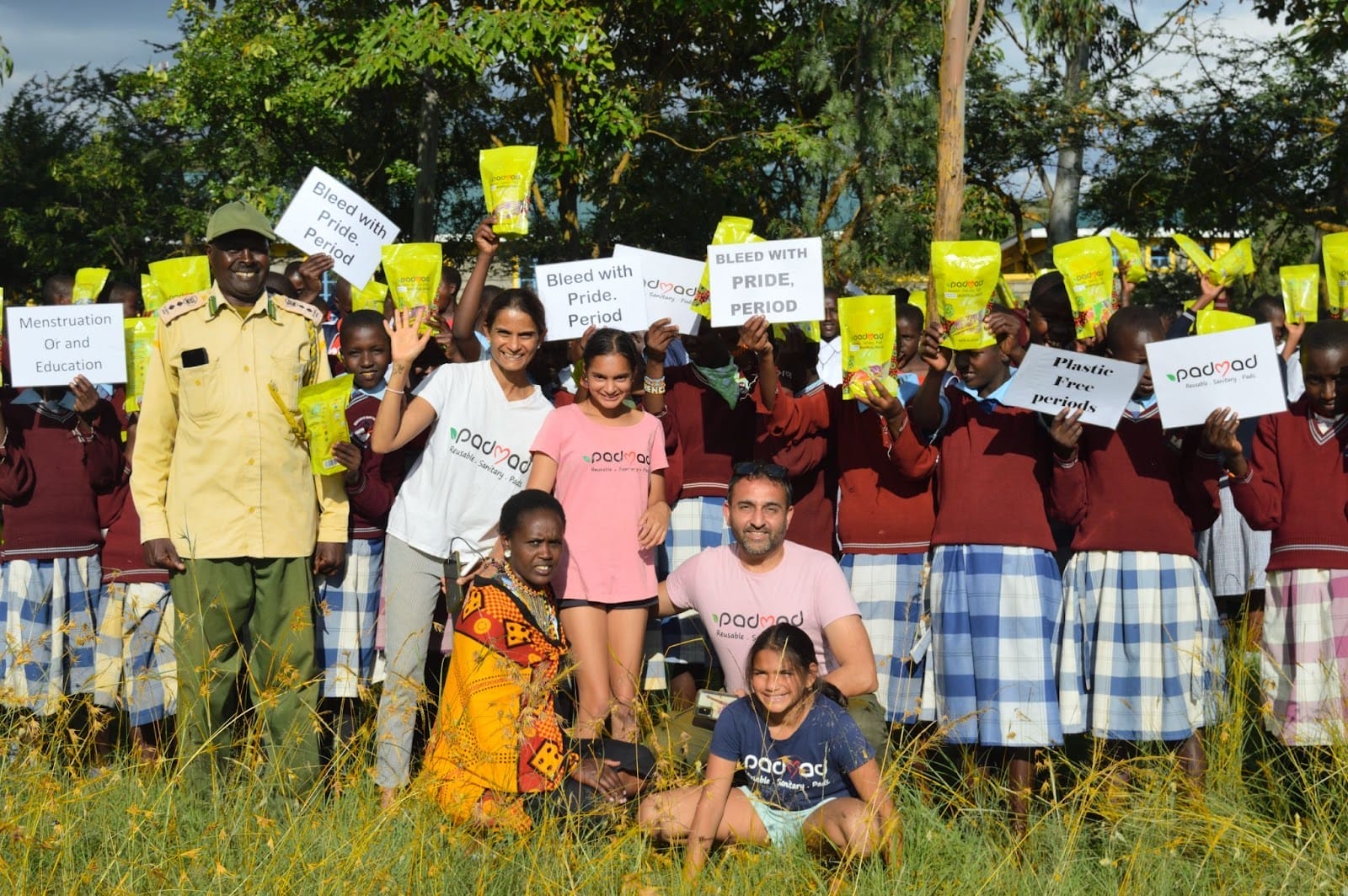
The School's Appreciation for PadMad
The school expressed gratitude for the donations, stating that they will supplement the assistance received from the local government. Furthermore, the girls will no longer need to spend at least Ksh 100 each month on disposable pads, which contribute significantly to pollution due to their high plastic content and improper disposal. Instead, they have received reusable sanitary kits, which are eco-friendly alternatives.
“We are very much grateful because they’ve come to us when we really needed their help. We’ve been waiting for government donation and has not yet come so it was quite a challenge since we opened school. We are very much grateful to Padmad and Porini, they’ve been of great help and we are going to hope and pray this won’t be the last time. They’ll keep coming so that we can help the girl child in our area,” said Teacher Njeri.
“We are very happy and the school is very happy that they received that number. These sanitary pads are reusable, they can be used for up to five, six years as opposed to the normal plastic which is disposable and they litter all over and they fill up our toilets and now these ones are reusable. They can be washed and now they can be reused again,” added Nkoitoi, representing Gamewatchers and Porini Camps, during the donation event.
Previous Collaborations between Gamewatchers Safaris and PadMad
PadMad has also in the past distributed sanitary towels to other schools within the Ol Kinyei Community including Oloibormurt and Kishermoruak Primary school and this was the first time, the pads were being donated in Endonyo Narasha Primary school. In Selenkay Community, PadMad distributed this important kits to three schools including Iloirero, Lenkisem and Iltuleta primary schools in 2022.
We need your support!
Your support can make a significant difference in combating period poverty. Madhvi emphasizes that donations and raising awareness are crucial steps towards ending this pervasive issue.
“People can support these projects through, obviously, donations in any currency, but also to bring in awareness, to make sure that they’re spreading positive things about menstruation and just to have dialogues in their homes and men but also to bring in awareness, to make sure that they’re spreading positive things about menstruation and just to have dialogues in their homes and men talking to their daughters about this,” said PadMad Director, Madhvi.
Your contribution will directly impact the lives of young girls by providing them with reusable menstrual kits, offering long-term solutions to their menstrual hygiene needs. These kits, consisting of liners, pads, and holders, are not only eco-friendly but also durable, lasting up to five years.
Join us in making a difference by supporting our community projects. Together, we can ensure that every girl has access to the resources she needs to manage her period with confidence and dignity. Learn more about how you can get involved by visiting our website: https://porinisafaricamps.com/join-hands/
We extend our heartfelt gratitude to acclaimed wildlife photographer Alison Mees and her generous friends for their donation of £550 towards the reusable pads. Your support is deeply appreciated and will make a meaningful difference in the lives of young girls.
Let’s work together to create a world where period poverty is a thing of the past. Thank you for your support!
Empowering Women in our Conservancies
Community

Empowering Women in our Conservancies
Our Porini Giraffe Camp in the new Mara Ripoi Conservancy (Masai Mara) is one of the few safari camps with women safari guides …
Everlyne Siololo is from the local Maasai community whose land is in the Ripoi Conservancy and is a guide with Gamewatchers.

We’re committed to growing the number of community ladies that are part of the Gamewatchers family and we are also sponsoring ladies at the Wildlife Colleg

We were delighted that the UK’s The Guardian newspaper recently featured an article regarding the importance of the increasing involvement of Maasai women in their communities – you can read the article here: The Guardian online
Women Self-Help Group receives Solar-Powered Milk Coolant – Maasai Mara
Community


Women Self-Help Group receives Solar-Powered Milk Coolant – Maasai Mara
A Maasai women group from the Greater Maasai Mara region in the former Ol Kinyei Group Ranch has benefit from a 3,000-litre solar-powered milk coolant donated by the World Wide Foundation for Nature(WWF) with funding from the German government in partnership with Gamewatchers Safaris and Porini Camps.
Dubbed “Ol Kiwu Self-help group” the 18-member group received the milk coolant as a result of leasing their land out for wildlife habitat conservation and tourism. Land which today constitutes the 18,700-acre Ol Kinyei Conservancy. 15 out of the 18 group members are Ol Kinyei landowners.
The coolant, officially launched on 30th April 2022 at Endonyo Narasha, is aimed at providing an alternative income to the Maasai women who will sell their product to commercial milk suppliers at a better price thus improving their livelihood. The Maasai’s life is largely centered on cattle herding and this project will enable them to increase the income they receive from the same cattle.
WWF has installed a total of 56 solar panels to power the milk coolant. Speaking during the launch of the project, WWF Kenya, Sub-landscape Coordinator, Samson Lenjirr said that the WWF is committed to improving the livelihoods of people who commit their land to wildlife habitat conservation.
“This is a purely 100% funding from WWF Germany and what we call the BMZ II that is through the Federal Ministry of Corporation through WWF and majorly what this has done is to ensure improvement of livelihoods that touches more on the people directly but of course with an inclination in wildlife conservation,” said Mr. Lenjirr.


In addition, Gamewatchers Safaris and Porini Camps paid for the piping for water and provided a loan to the women group to enable them to pay rent and for a security personnel among other things before they start making a profit from the project. Gamewatchers Safaris and Porini Camps Managing Director, Dr. Mohanjeet Brar, says that the project is important as it helps landowners reap greater benefits from setting their land aside for wildlife conservation.
“This is an area where there is no other milk cooling plant so what happens is that during the time that the cows have produced plenty of milk, there is no market for it. So, often the milk gets wasted, and they are not able to access higher prices. However now with the milk cooling plant in place the women will be able to actually buy from the surrounding community members, so people will have access to sell their milk at all times and they can now sell in bulk to commercial companies like Brookside,” says Dr. Brar.
Kenya’s largest milk processor, Brookside Dairy Limited has already visited and shown interest in purchasing milk from the cooling plant.
Ol Kiwu Self-help group Chair lady, Kileku Ene Sholo, who is also a landowner expressed her gratitude to the WWF and Gamewatchers Safaris and Porini Camps for the project saying that she now sees the importance of wildlife conservation.
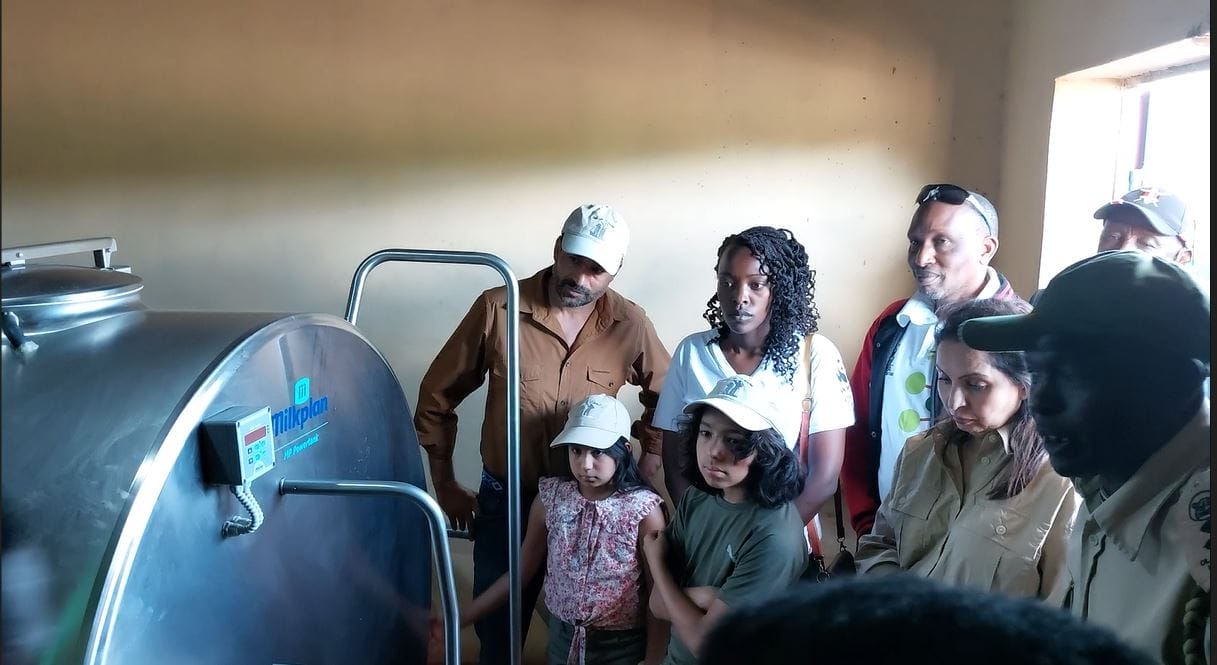

This is something amazing because today we are with donors who have brought a project great as this. We thank you very much because you have brought us something very important. Something that most people would only dream of having. And now whenever I see this milk coolant, I will be thanking the wild animals,” said Shololo.
Over the years, Gamewatchers Safaris and Porini Camps have participated in various projects to provide benefits and amenities for communities that live outside the conservancies including providing bursaries and scholarships, digital learning, set up of predator-proof bomas and deterrent lights, toilet construction, beekeeping and more. Learn more about our community outreach projects and how you can be part of it here: https://www.porini.com/about-us/supporting-communities/
WWF Kenya and Gamewatchers Safaris have been working closely with local communities and stakeholders in mitigating against human-wildlife conflict, habitat management, and securing existing rangelands while at the same time improving livelihoods.















